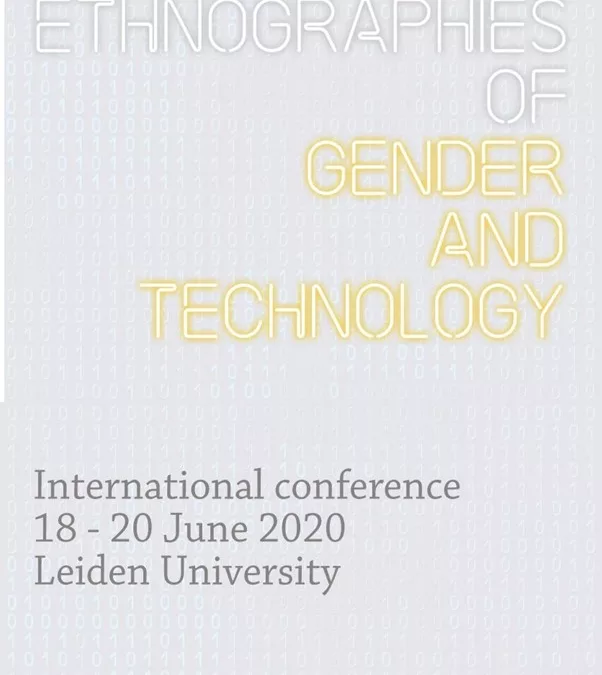Due to the Corona circumstances, the conference has been cancelled
The Fifth International Conference of LOVA will focus on gender and (digital) technology. The idea that technology is neutral persists, even after decades of activism exposing male bias in technologies. This is also becoming clear in emerging technologies, such as artificial intelligence (AI), blockchain, cryptocurrency, Internet of Things (IoT), and facial recognition. For example, Virtual Personal Assistants (such as Siri, Bixby, Alexa) will give gendered answers. AI’s ‘diversity crisis’ has particularly serious consequences for young black men as intransparent algorithms are used to make judgments about job applicants and criminal defendants. Blockchain and cryptocurrencies are predominantly white male industries, and IoT is associated with serious implications for victims and survivors of domestic and sexual violence and abuse as these technologies expand the risks for stalking and surveillance. Furthermore, most commercial facial recognition software contains major flaws when used to identify dark-skinned women. On the other hand, new technologies may also open up new and creative ways to decrease existing inequalities and offer opportunities, such as in women’s health care and queer engagement, but for that, we need to make sure that existing biases are not programmed into our new technologies, systems, and infrastructures. The conference aims to critically examine the relationship between gender and technology from perspectives of intersectionality, cyborg theory, assemblage theory and others. How do gender, race and class intersect in emerging technologies? How does technology reshape feminisms through new mediations, articulations and modes of engagement (e.g. Insta Feminism, xenofeminism, call-out/’cancel’ culture etc.). Which methods can help expose bias in new technologies? What role can ethnographers play in uncovering bias, but also in correcting bias?
Topics the conference aims to address:
- Gender and digitization
- Gender and algorithms
- Gender and social media
- Gender and Artificial Intelligence
- Gender and medical technologies
- Reproductive technologies
- Gender and genetics
- Gender and/in gaming
- Women’s employment in tech jobs
- Gender and design
Participation and registration: LOVA invites scholars to participate in this international conference by proposing a panel or individual paper. We encourage participants to submit audio-visuals and other alternative ways of presenting their research. We also encourage students (undergraduate and graduate) to present their research. Participants may register by sending panel proposals and individual paper abstracts to conference@lova.network before February 21st, 2020. Participants will be informed in due time after having submitted their abstracts whether or not their panels and/or papers have been accepted.
Individual paper proposals should not exceed 200 words. Please also mention affiliation, address, email address and discipline.
Panel proposals include a short panel abstract (about 200 words), 3-4 paper abstracts, and names of organizers/chairs, presenters and a possible discussant. Please also mention the affiliation, address, email address, and discipline of each participant. Panels last 1 hour and 45 minutes. Panel organizers have a certain freedom in the number of papers they wish to present, the length of the presentations, and the format of the panel. Nevertheless, we encourage 15 to 20-minute paper presentations with 3 to 4 speakers in one session, so that there is sufficient time for discussion.
Registration fee: Registration costs € 110. This includes coffee/tea and lunch for two days and a conference bag. LOVA members, PhD candidates and researchers with a low income (add a motivation letter) pay € 80. Undergraduate students pay € 50.
To complete registration, the fee has to be paid before 1 April 2020.
Language: English.
Program: Available in May 2020.
Location: Leiden University. Please visit our website www.lova.network regularly to keep up-to-date.
Accommodation: Participants are responsible for arranging their own accommodation. Leiden is within commuting distance of other major Dutch cities (Amsterdam, The Hague, Rotterdam and Utrecht).
